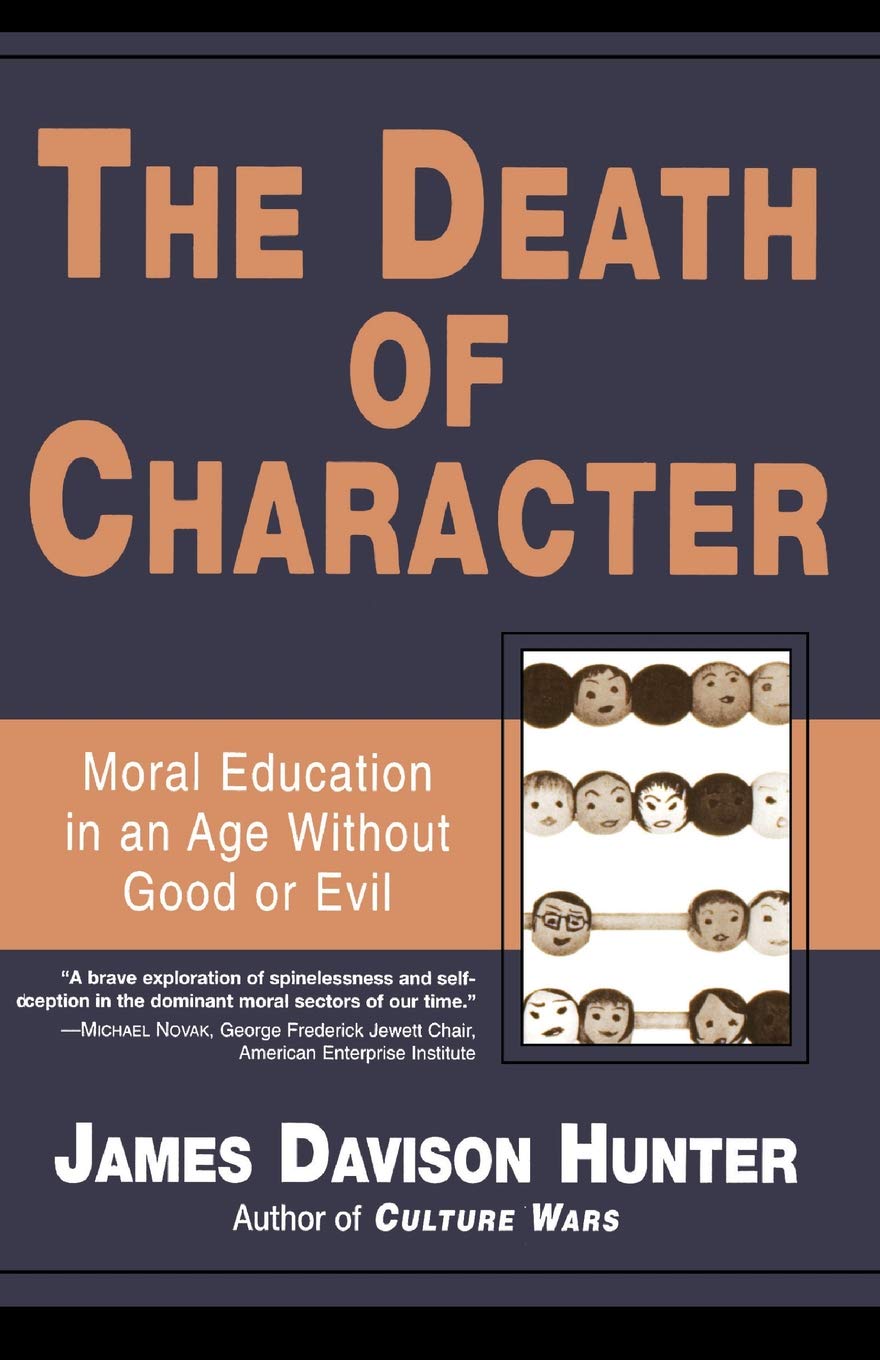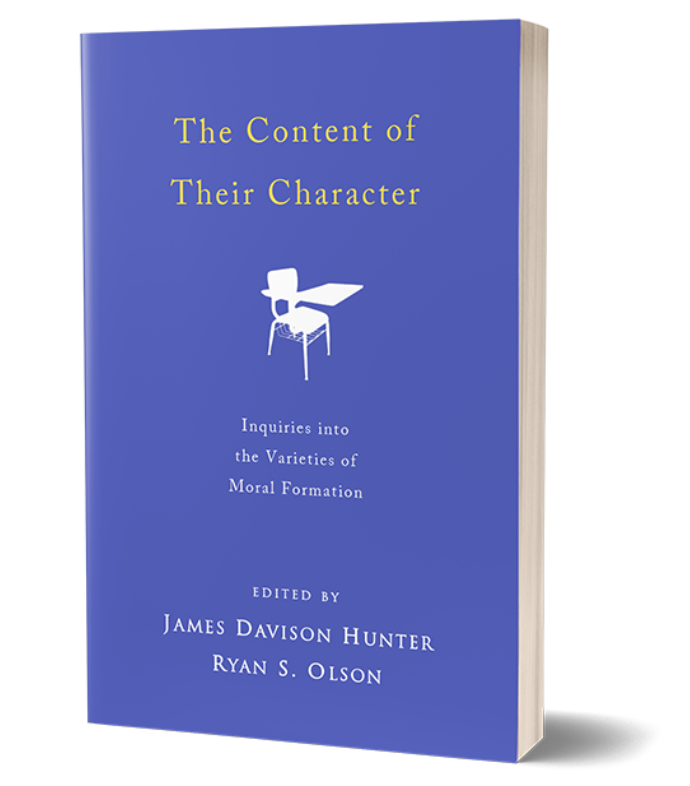New York Times columnist David Brooks frequently writes about character and related moral themes. In a recent column, Brooks quoted the founder of the Institute for Advanced Studies in Culture, James Davison Hunter.
The passage was from Hunter’s 2000 book, The Death of Character: Moral Education in an Age without Good and Evil. The book has had a profound impact on my life and career—and on the birth of CultureFeed.
From 2008 until 2016, I had the privilege of working for a family foundation. The benefactors wanted to invest in the rising generation of Americans, and they were most concerned about character formation, the moral life of the young. Were children cultivating the virtues of honesty, dependability, industry, compassion, and the like? I was tasked with finding ways to help schools and school leaders focus on character as the most important aspect of education.
I read as many character-education books and curricula as I could find. I flew around the country and interviewed education leaders and researchers. I met with principals and CEOs. Almost all of the people I spoke with were sincere. They had hearts of gold.
But many of the conversations seemed shallow, thin, perfunctory, unserious—and nothing quite fit the foundation’s interests. What these programs were doing seemed inadequate given our need: kids who were raised to know and to do the right thing reliably. We couldn’t count on moral platitudes, a grab bag of values, and a character workbook used Wednesdays at 1:15 p.m.
I talked with one group that told students to focus on developing their personal strengths—aptitudes that the kids discovered by taking a personal assessment. But for me, this immediately raised a question: What if the child’s weakness turned out to be honesty? Well, the group’s spokesman responded, the child should still focus on their strengths, since after all, we know some people just aren’t capable of honesty.
He wasn’t alone in this view. Another group told me they couldn’t “impose the value of honesty” on students. This struck me as baffling. This same group required the parents of their students to sign an agreement at the beginning of the school year and carefully comply with its terms. Why require integrity from the parents but not the students? What message did that send? It seemed almost insane.
 And then I read The Death of Character. Its impact was dramatic. Suddenly, I understood why almost none of the programs seemed to be working. They weren’t working because there was a fundamental design flaw.
And then I read The Death of Character. Its impact was dramatic. Suddenly, I understood why almost none of the programs seemed to be working. They weren’t working because there was a fundamental design flaw.
In that book, Hunter traces the long history of moral education in America, from the Puritans through the Common School movement, John Dewey, Thomas Lickona, and William Bennett. Hunter reviews hundreds of empirical studies. He unpacks the theory—the anthropology, pedagogy, cosmology, and ethics—that underlies each of the dominant approaches to character education.
Here’s the story. For more than 150 years, American character educators have, admirably and rightly, tried to be inclusive. As America’s population diversified, they searched for a common language to accommodate under one school roof the disparate moralities of children from many traditions, ethnicities, and backgrounds. And they succeeded. The new language of moral education was psychology.
Although Americans could not agree on the goal of character education—Heaven? Responsible citizens? Productive workers?—a consensus emerged agreeing to a generic “happiness” and “well-being.” Although Americans could not agree on the nature of children—Original sinners? Pristine innocents?—a consensus emerged viewing “autonomous choosers” as acceptable. Although Americans could not agree on how morality should be taught, a consensus emerged recognizing that children progressed psychologically through stages of moral and personality development.
And although Americans could not agree on the content of moral instruction, a consensus emerged advocating a fundamental shift to process over content. That’s what psychologists favored: “a working subordination of metaphysics to method—a subjection of some notion of moral reality, to which one must or ought to conform, to the process whereby morality is acquired,” as Hunter phrased it.
This consensus continues today in the form of positive psychology, social-emotional learning, and many virtue-oriented and community-based approaches, programs, and schools. The problem with many of these is that they are insufficient. They cannot form students’ character.
The shift has been profound. Until recently, the goal of moral education was to serve others through self-sacrifice, not self-fulfillment. Until recently, the nature of children was rooted in a community with traditions and with caring adults who imparted common goals and standards—realities that children had to conform to with self-discipline, while resisting temptations with self-control. Until recently, morality was seen as the product of memorization and reflection, mistakes and restitution—not automatic development.
And until recently, moral instruction needed content—the sacred revelation of religions, or for the nonreligious, “the conviction of truth made sacred, abiding as an authoritative presence within consciousness and life, reinforced by habits institutionalized within a moral community,” as Brooks quoted Hunter in The New York Times. Psychology, in contrast, focuses repeatedly on the truths discovered subjectively within.
Psychology certainly has insights to offer, but the formation of children is too complex for a single academic discipline alone, since it represents just one facet of human understanding. We need contributions from the whole range of the human intellect—history, sociology, literature, philosophy, theology, political theory, economics, and so on. Notably, this includes disciplines that have been crowded out of the main arena of molding children’s character.
For more than a decade, Hunter’s book has provided the lens that has helped my wife and me decide where to enroll our children in school. The book has influenced my professional career, including my personal journey to spearhead the development and launch of CultureFeed.

If character is your interest, stay tuned to CultureFeed. We’re continuing to share insights from The Content of Their Character—essentially a follow-up study to The Death of Character. We’ll soon be publishing the results of the largest survey ever conducted of American parents and their teens on character formation. And we’re sharing the lessons we’re learning about measurement and best practices with a growing audience of school leaders and other educators.
With the future of our children and our communities hanging in the balance, character is too important to leave to packaged programs that are unsuited to—and even half-hearted about—the cause.
* * *
Ryan S. Olson is Director of the Institute for Advanced Studies in Culture at the University of Virginia.

